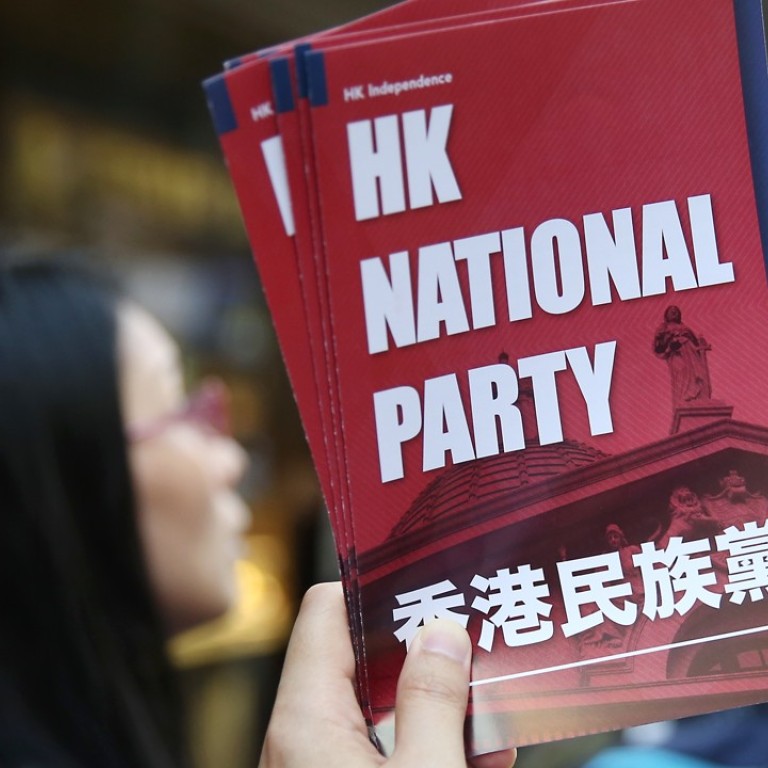
China hits out at foreign attacks on Hong Kong National Party ban, but spokeswoman for US Secretary of State Mike Pompeo renews criticism just hours later
Statement from foreign ministry in Beijing comes after US, Britain, EU and Human Rights Watch take aim at decision to outlaw separatist group
China’s foreign ministry on Tuesday issued a stern rebuke to other countries for criticising the Hong Kong government’s unprecedented ban of a separatist party, urging foreigners to stop interfering in the nation’s internal affairs “under the guise” of freedom of speech and association.
“To the irresponsible comments made by some countries and organisations on the Hong Kong government’s decision to ban the Hong Kong National Party, we are in strong dissatisfaction and firm opposition,” ministry spokesman Geng Shuang said at a daily press briefing.
Any move to promote Hong Kong independence and secession from China was not acceptable, and the Hong Kong government had acted correctly, in accordance with the law, Geng said.
“Banning the party is an internal affair of Hong Kong and China, which cannot allow any foreign intervention.
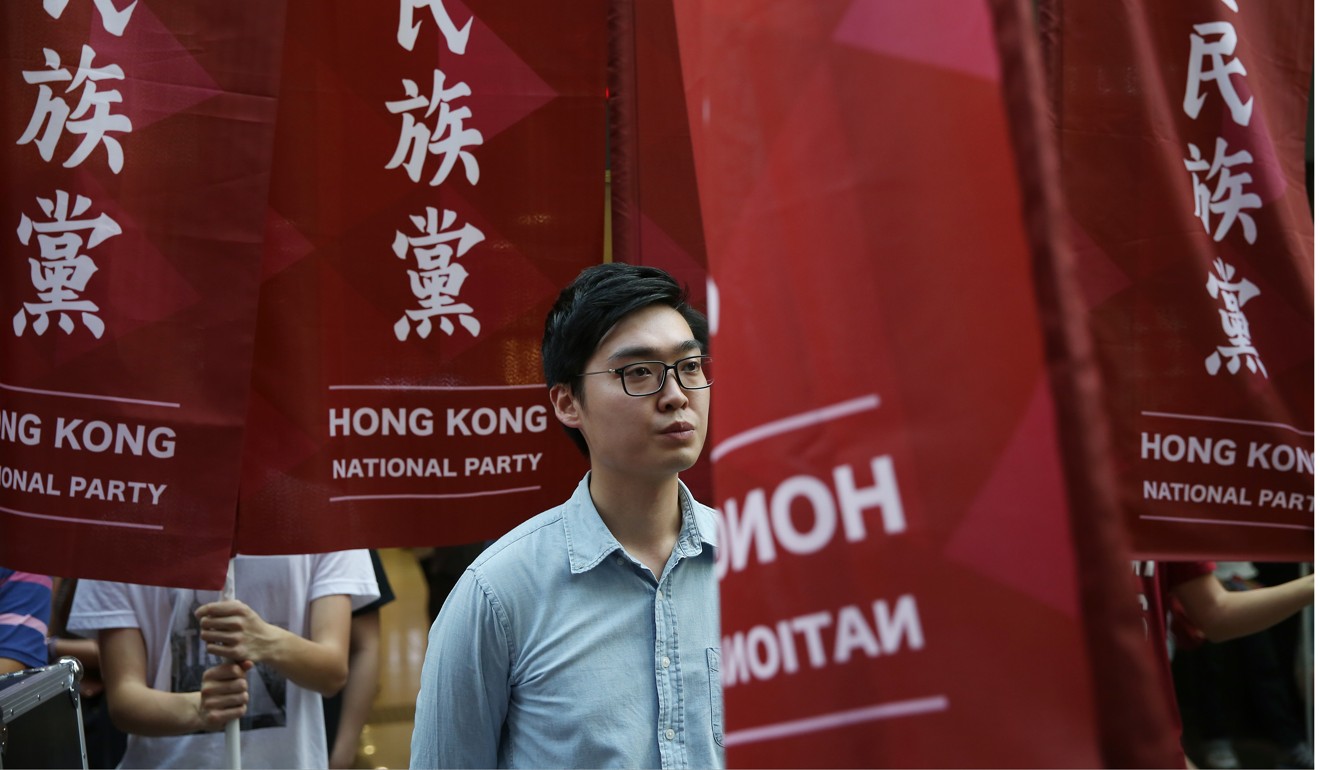
“We urge countries and organisations concerned to respect China’s sovereignty and territorial integrity, and to stop intervening in Hong Kong and China’s internal affairs under the guise of so-called ‘freedom of speech and association’,” he said.
Geng did not name any countries or groups, but after Hong Kong security minister John Lee Ka-chiu announced on Monday that the National Party had been outlawed on national security grounds, several foreign bodies issued statements of disapproval.
Ban on HKNP over ‘armed revolution’ call met with both cheers and fear
Hours after Geng’s comments, Heather Nauert, a spokeswoman for US Secretary of State Mike Pompeo, added fuel to the fire by also expressing concern over the ban. In a tweet posted on Tuesday night she said the US supported the freedoms of expression, peaceful assembly and association.
“These are core values we share with Hong Kong, and must be vigorously protected,” Nauert said.
Her comments echoed those on Monday by the US consulate which said the ban was inconsistent with core values of freedom of expression and association that the United States shared with Hong Kong.
Britain’s Foreign Office said it did not support Hong Kong independence, but urged full respect for the city’s high degree of autonomy and its rights and freedoms.
The European Union said the ban would limit political activity in the city and “risks having a wider negative impact”. Human Rights Watch proclaimed it “a grim sign for human rights” in Hong Kong and urged the government to immediately reverse its decision.
Their outcry also prompted the Office of the Commissioner of the Ministry of Foreign Affairs in Hong Kong to issue a statement staunchly supporting the ban and warning foreign organisations to “stop issuing wrong signals to Hong Kong independence forces”.
Instead, they should fulfil their promise of supporting the “one country, two systems” policy under which China governed Hong Kong, the office said.
In a meeting with Hong Kong professionals in Beijing on Tuesday, Shen Chunyao, chairman of the Basic Law Committee – a body that advises the Chinese government on Hong Kong’s mini-constitution – highlighted increasing pro-independence advocacy, and said the city should enact national security legislation.
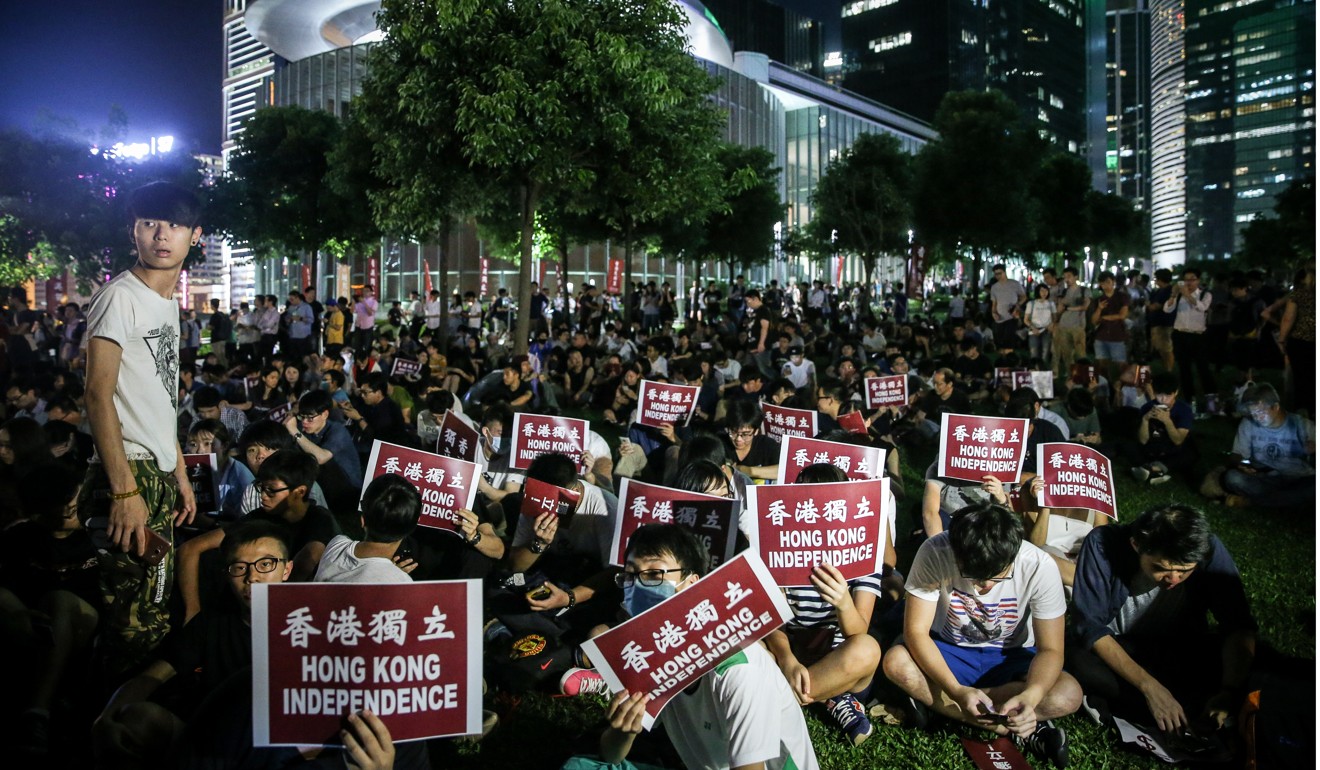
Under Article 23 of the Basic Law, Hong Kong must install its own law to prohibit acts such as “treason, secession, sedition and subversion” against the central government.
A source at the meeting quoted Shen as saying that Article 23 needed to be in place so “no separatist act can be tolerated”.
The ban on the party, whose convenor is Andy Chan Ho-tin, means anyone who serves it, takes part in gatherings or provides financial assistance could be liable on conviction to a fine and jail sentence of up to three years.
Ban of Hong Kong separatist party was on ‘compelling’ grounds
Following the government gazette notice on Monday announcing the ban with immediate effect, Hong Kong police asked Facebook to take down the party’s public page, a police source said.
But the social media giant had not responded to the request as of Tuesday and declined to comment when approached by the Post. The party’s website was down and Chan did not respond to a request for comment.
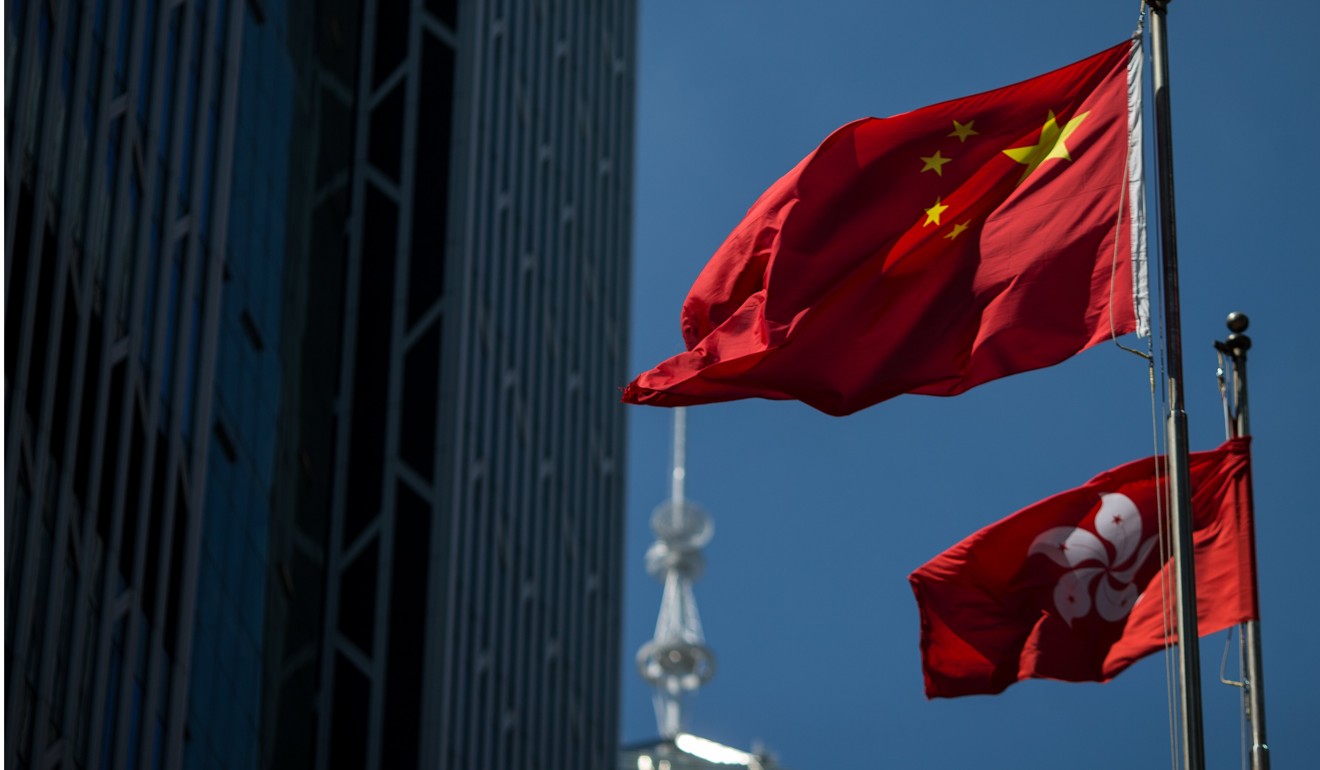
The ban has sparked fears in the city that more political groups will be targeted and that the media and public may feel less free to express their views in case they step on legal landmines.
After HKNP ban, could any two people who mock mainlanders be next?
Asked if the ban would pave the way for further tightening of controls, Tam Yiu-chung, Hong Kong’s sole representative to China’s top legislature, said on a radio programme on Tuesday: “There has been no widespread targeting of others. If the government did that, it would definitely face a judicial review.”
The National People’s Congress Standing Committee member said any advocacy of Hong Kong’s separation from China was a dead end.
Civic Party leader Alvin Yeung Ngok-kiu, who called into the radio programme, maintained it was “completely far fetched” for the government’s Security Bureau to cite what the party did before it was banned as evidence of “actual actions threatening national and public security”.
Yeung said a court would be the best place to differentiate rhetoric from actions and to judge whether some actions were sufficient to pose a threat.
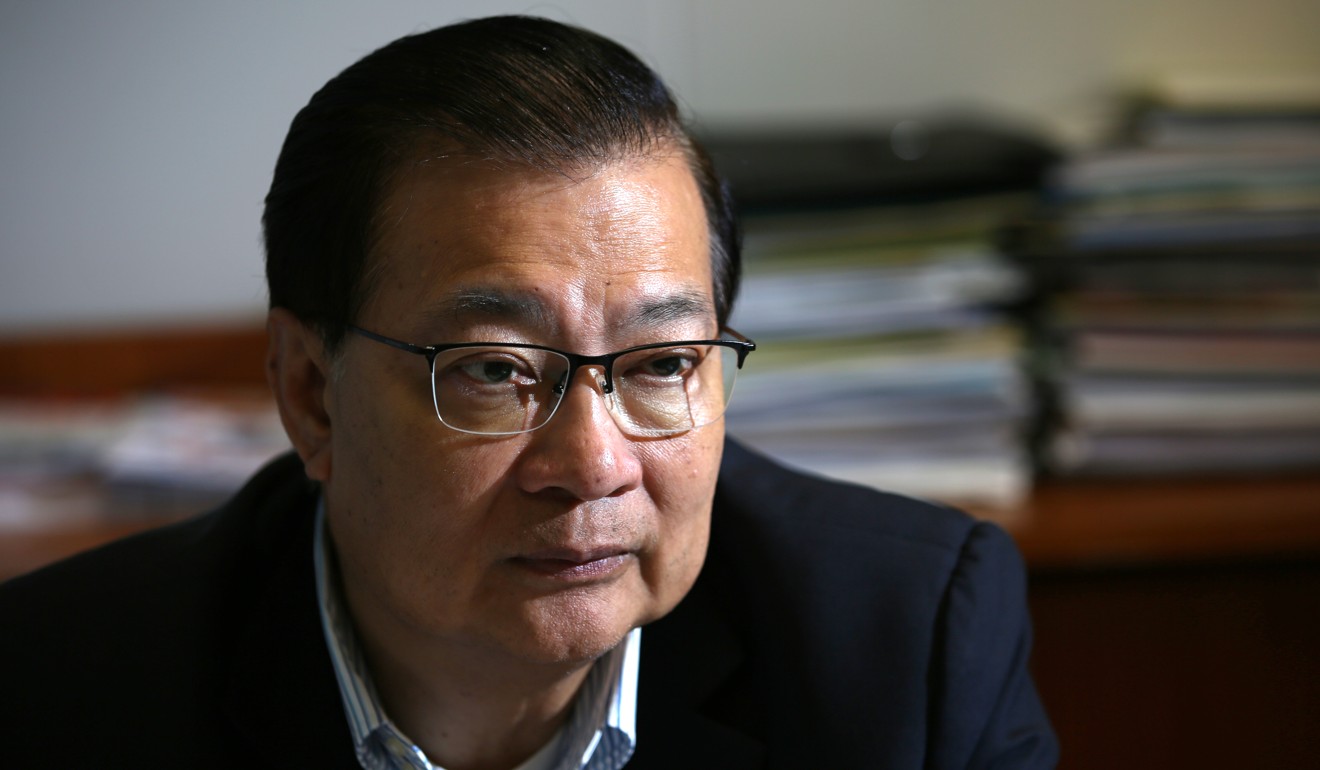
But Tam said political rhetoric that appealed to groups and incited them to behave in a certain way could affect national security.
On Tuesday, localist party Demosisto expressed worries that it would also be targeted by security officials, even as it emphasised its ideals of self-determination were different from the National Party’s pro-independence stance.
Demosisto secretary general Joshua Wong Chi-fung, the poster boy for the Occupy movement for greater democracy four years ago, said Hongkongers’ support could protect the group.
Separately, two pro-independence groups, the Hong Kong National Front and Youngspiration, announced they would work more closely together. The front, founded in 2015, said Youngspiration’s convenor, ousted lawmaker Sixtus Baggio Leung Chung-hang, would be its new spokesman.
Leung was disqualified from the city’s legislature by a Hong Kong court over an improper oath of office two years ago. His antics during a swearing-in ceremony featured anti-China slogans and banners.
“We believe the move will contribute to more efficient synergy of resources, actions and intelligence between the two groups, and will greatly benefit the development of the pro-independence camp,” the National Front said.

